|
Studies show that lockdowns, masking and other community restraints have had zero influence on the incidence and mortality of SARS-CoV-2. Meanwhile, other studies show almost 100% mortality correlation with low vitamin D status, obesity and old age frailty.
Accordingly the health authorities and governments urge (sometimes with force) you to lockdown and mask up while refusing to advise you to get more sunshine (or otherwise supplement vitamin D), eat healthily and otherwise ramp up your immunity (which is the real defence against this and other diseases). Wake up, it is time for your dip.
0 Comments
 I went to a presentation by Professor Grant Schofield last night on the way home from golf - mainly to show some support. I was surprised to find that it was a packed auditorium and there were a few familiar faces there - including my doctor and one of my favourite drug dealers ('pharmacist' being the more politically correct term). The Taupō community is doing quite well on adoption of the low carb high fat science and all looks good for this community going forward. The aim of the group organising it is to have Taupō a diabetes free island of hope to stand out to the rest of the country, and perhaps the world, as an example of how we can do things better to combat some of our most crippling illness through lifestyle change rather than pharmaceuticals. To the surprise of many present, who thought that Grant might be a touring 'evangelical' from one of the 'high power' countries like the US of A, it turns out he is a local product, having actually been born in Taupō and then living for a while in Turangi as a child before moving further afield. He presented well as a speaker, managing to illicit some good laughter from the crowd as he got across some important information. His reply to a question about whether his own children were low carb - "yes they are, but they have no idea that they are" - got a good chortle going. While I may have spotted a couple of errors in the presentation, I chose not to ask any 'hard questions' (as urged by Gary Hayman), because I didn't want to come off as a 'dick' in what was a very supportive group ;) . I was pleased to hear my own doc, Pete Battersby, ask a question about gout, and, while the subject was not fully covered, was at least heading in the right direction. Excellent work by the team of Grant Schofield, Glen Davies and Sarah Hancock!
My own journey with low carb has been fairly well chronicled (on these pages and on Facebook) over the last few years and it has been a lasting intervention that has seen both my wife and I lose weight and become healthier from our earlier situation of obesity and metabolic disarray. Prof. Grant came onto my radar in 2014 when he was offering a book 'Big Fat Surprise' as a prize for the best personal stories of low carb journeys and he published mine (as well as presenting me with a copy of the book).
It is great to see Low Carb High Fat currently making such traction against the last 5 decades of dogma that has been taking us down a path of ill-health. 
Well, I've been threatening to do it for a while now, and it is a wet day, so no golf. I've therefore been beavering away at a more sensible RDA (Recommended Daily Allowance).
Having long been dissatisfied with the official dogma that dominates the recommendations for what we should eat - and which are doing increasingly little for public health, I've come up with my own set of criteria for what constitutes an evolutionarily appropriate target for macro and micro-nutrients. Something made us get bigger brains and smaller intestines - and it wasn't the sort of food that dominates the centre aisles of modern supermarkets. It wasn't even the food that was 'grown' by humans - our brains got larger long before we started growing, raising and manufacturing our foods. It certainly wasn't plants - because plants (especially those which we could gather during prehistory) just couldn't deliver the nutrients needed to feed our brain on such a small intestine. Simply put, it was eating animal material, whether from land or sea, that allowed us to get the high concentration of nutrients needed to make us who we are. Unfortunately, it seems that RDAs are set based on the nutrients we get from our modern diet - the same diet that is making us increasingly fatter and sicker. For example, the amount of vitamin C is determined based on what might be needed to metabolise some of the highly refined carbohydrates that are now in our food chain. The more refined carbs you eat, the more vitamin C you need. It turns out that if you eat just fresh meat, you don't need any more vitamin C than is contained in the meat - which is how I've been eating for the last 3 years (and look - no scurvy!) My suspicion is that many other nutrients fall into a similar category - if they aren't in meat, then you don't need them. Additionally, nutrients such as iron, calcium, copper, magnesium are more 'bioavailable' in animal-based food than in plants. This may mean you need to eat huge amounts of plants to harvest the nutrients you need (if you get them at all). My strategy in developing the new MIFFED guidelines is to go back to foods that we know are fine for us and base the RDA on what they contain - leaving out all the new foods and stuff we've come up with in the last 15,000 years. The amounts of nutrients in the following table are based on a simple menu of foods as follows:
Catching Fire: How Cooking Made Us Human - Critical Analysis
After reading a comment in a Facebook group the other day and posting my own comment (with citations) supporting my understanding that human brain growth preceded our use of fire. I was urged by a couple of members to read the book Catching Fire: How Cooking Made Us Human by Richard Wrangham, which supposedly supported their understanding that it was use of fire to cook food that created the larger brains in humans. After purchasing the book (because I didn't want to be considered 'close-minded'), and following the author through a tortuous path of tortured logic, I'm beginning to wish I'd simply shut up and refrained from making the comment in the first place, allowing the respective members embroiled in the debate to continue as they liked. However, I'd made the plunge so now I'm following up with my opinion of the book. Introduction The Cooking Hypothesis The introduction of the book starts reasonably enough with the description of our ancestors creating and using stone tools for cutting meat some 2.6 million years ago. The transition at that time from the more ape-like Australopithecines to the Habilines is explained easily enough by meat becoming part of the diet. Wrangham has difficulty with the next transition 1.8 million years ago from Habiline to Homo Erectus, which he ultimately puts down to the use of cooking. He has difficulty rationalizing the smaller jaws with the ability to eat raw food: "a key problem concerning the anatomy of Homo erectus, which had small jaws and small teeth that were poorly adapted for eating the tough raw meat of game animals. These weaker mouths cannot be explained by Homo erectus's becoming better at hunting. Something else must be going on." At no point does he consider climate change, a period of cooling (as happens on a cyclic basis every 100,000 years or so), as being a possible driver that caused our early ancestors to be reliant on meat in the diet as opposed to plants. That possibility of having even greater amounts of meat in the diet causing our brains to become larger yet again. He finishes the introduction with the idea that it is 'cooking' that makes us human and supports it with the curious assertion that: "cooking increases the amounts of energy that our bodies obtain from food" I say 'curious' because, in the last 15,000 years of civilization it seems that increasing the energy we obtain from food has mainly been associated with a decrease in the size of our brains as we've become better at breeding plant species and processing them and making them again a main staple of our diet. Furthermore, our civilization, now divorced from the 'hands on' involvement in capturing, killing and butchering animals for food, has given rise to a new breed of human, the vegetarian/vegan. A study by Oxford University showed: "Using tests and brain scans on community-dwelling volunteers aged 61 to 87 years without cognitive impairment at enrolment, they measured the size of the participants' brains. When the volunteers were retested five years later the scientists found those with the lowest levels of vitamin B12 intake were the most likely to have brain shrinkage. Not surprisingly, vegans who eschew all foods of animal origin, suffered the most brain shrinkage. This confirms earlier research showing a link between brain atrophy and low levels of B12. Vegans are the most likely to be deficient because the best sources of the vitamin are meat, particularly liver, milk and fish. There were two other worrying aspects to this trial. The first was at the start of the trial, the biggest brain in a vegan, at 1455 ml, was already smaller than smallest brain of someone on a ‘normal diet’, at 1456 ml." All said and done, if you are going to define humans as 'cooks' and the reason we became humans as 'cooking', then there is really nothing to be argued. I probably shouldn't have gotten involved in the debate. Chapter 1 Quest for Raw Foodists In the first chapter we are asked to consider the Evo diet. The Evo diet appears to be a raw plant food diet - later supplemented with cooked fish. We take nine seriously unhealthy people and put them on an experimental raw vegetarian diet for about 2 weeks (12 days I worked out). They eat up to 5 kg per day until they are full of fibre and this works out to be around 2000 kcal per day. Their cholesterol levels and blood pressures drop and so does their weight. This is what Natasha Campbell McBride has called a fast. This has proven that the human body is not good at obtaining nutrients from raw plants, but that a lack of nutrients for a period of time can be a healthy intervention for a group of people who have become sick from eating a standard western diet for a few decades. Next, the chapter suggests a cooked vegetarian diet is the same energy value as a cooked meat rich diet. Shows data that indicate a raw vegetable diet contributes to poor weight gain. "The amount of meat in the Giessen Raw Food diets was not recorded but many raw-foodists eat rather little meat. Could a low meat intake have contributed to their poor energy supply? It is possible. However, among people who eat cooked diets, there is no difference in body weight between vegetarians and meat eaters: when our food is cooked we get as many calories from a vegetarian diet as from a typical American meat-rich diet. It is only when eating raw that we suffer poor weight gain." Not only poor energy supply but what about adequacy of nutrients? Is he really suggesting that calories is the important feature here? He is using data from people eating basically raw vegetarian diets and saying that these will be equivalent to raw meat diets in terms of nutritional inadequacy? Next, to illustrate energy insufficiency, Wrangham mentions absence of menses on a raw food diet. "Healthy women on cooked diets rarely fail to menstruate, whether or not they are vegetarian. But ovarian function predictably declines in women suffering from extreme energy depletion, such as marathoners or anorexics." Another illustration of how a raw plant diet is not good for the survival of the species. Indeed much of the chapter is discussing the problems of obtaining nutrition from raw plants - something I can agree on. There is not much study of what happens on a raw animal-based diet but he does discuss one case where a family were stranded in a lifeboat after their boat sank. This family spent 38 days in a boat and had to eat what they could catch for the last 31 days (when they no longer had access to sugar - cookies and candy). They emerged healthier than when they started. However they missed the cooked foods they had traditionally eaten. From this he concludes: "The lack of any evidence for longer-term survival on raw wild food suggests that even in extremis, people need their food cooked." [Bold emphasis my own] Chapter 2 The Cook's Body In chapter 2, Wrangham continues to assert that cooking achieves energy advantages and illustrates it by trying to draw an inference that cooking pet food is what causes our cats and dogs to become fat. "The spontaneous benefits of cooked food explain why domesticated pets easily become fat: their food is cooked, such as the commercially produced kibbles, pellets, and nuggets given to dogs and cats. Owners of obese pets who recognize this connection and see cooked food as a health threat sometimes choose to feed raw food to their beloved ones to help them lose weight. Biologically Appropriate Raw Food, or BARF, is a special diet advertised as being beneficial for dogs for the same reason that raw-foodists advocate raw diets for humans: it is natural." No elucidation here as to the macro-nutrient constituents of the "commercially produced kibbles, pellets, and nuggets given to dogs and cats". Just that cooked commercial foods make pets fat and Biologically Appropriate Raw Food makes them healthy again. The chapter goes on to describe changes to our anatomy including weaker jaw muscles. "Our small, weak jaw muscles are not adapted for chewing tough raw food, but they work well for soft, cooked food." And raw meat, I suspect. (At least my jaw muscles make short work of raw meat.) The gut comes into the dialog as having been reduced in size - in his view because we cook food. "Thanks to cooking, very high-fiber food of a type eaten by great apes is no longer a useful part of our diet. The suite of changes in the human digestive system makes sense." While the author correctly attributes the reduced size of the large intestine in humans to the fact that we no longer have to digest large amounts of fibre that the great apes do, he neglects to mention that we developed a gall bladder so we could store bile produced by the liver that will help us digest and get energy from ingested fats. Gorillas also get their energy from fats, but not exogenous fats like us. Their greater intestinal capacity allows for bacteria to digest fibre and convert it to fat for their energetic purposes. It is the ingestion of meat and preformed fats that has prompted this change in our "suite of changes in the human digestive system". Chapter 3 The Energy Theory of Cooking In this chapter, the author quotes "authoritative science" as saying that there is no effect of cooking on energy content of foods. Yet he finds this puzzling in light of his own grasp of the science of nutrition where he asserts: "Obviously it conflicts with the abundant evidence that humans and animals get more energy from cooked foods." He appears to be getting out of his depth here and delves into his own belief system in spite of what he reads from scientists and nutritionists. He is also perhaps, over-subscribed to the belief system of the 'calories in calories out' cadre - largely inhabited by old-school doctors, some 'big food' subsidized nutritionists, and 'bro-science' gym proprietors. "Although different nutritionists say that cooking has no effect on the caloric content of food, or increases it, or decreases it, we can clear up this confusion. As indicated by the evidence from raw-foodists and the immediate benefits experienced by many animals eating cooked food, I believe the effects of cooking on energy gain are consistently positive." [Bold emphasis my own] Unable to show any science for the increased digestibility of cooked meat over raw, he turns to a study done on the cooking of eggs increasing digestibility, This perhaps may be true for eggs, however we are really interested in meat from animals (particularly large ruminants) as that is what we think may have produced the massive changes in our increased brain size. After a little searching on the Internet I myself have managed to find this study: Compared with Raw Bovine Meat, Boiling but Not Grilling, Barbecuing, or Roasting Decreases Protein Digestibility without Any Major Consequences for Intestinal Mucosa in Rats, although the Daily Ingestion of Bovine Meat Induces Histologic Modifications in the Colon. https://academic.oup.com/jn/article/146/8/1506/4584673 Shows that cooking meat will actually not make much difference to the Total Ileal Digestibility of proteins (unless boiled - in which case it reduces it). "Conclusions: Boiling bovine meat at a high temperature (100°C) for a long time (3 h) moderately lowered protein digestibility compared with raw meat and other cooking processes, but did not affect cecal bacterial metabolites related to protein fermentation. The daily ingestion of raw or cooked bovine meat had no marked effect on intestinal tissues, despite some slight histologic modifications on distal colon." Notwithstanding evidence to the contrary, Wrangham goes on to assert as fact that we (and other animals) get more energy out of cooked foods - regardless of what they are - animal or plant. Where he is getting confused perhaps is the nutrient values. Cooked and processed plants certainly yield more digestible nutrients than the raw variety. However the nutrients they yield are typically sugars which simply become glucose and not much else. While this provides the body with energy, it leaves it lacking in some of the building blocks you might think would be necessary to grow a bigger brain, like amino and fatty acids. Cooking and fermenting plants will certainly render less harmful some of the toxins they contain, thereby incidentally making them more useful. Meat, on the other hand, requires no such processing to make it yield up the amino and fatty acids we need to repair our cells and create new ones. While it may require slightly longer to denature in the stomach (Wrangham insists that it only partially denatures), raw animal protein will nevertheless be fully dissolved by the time it gets to the ileum and is ready for full absorption by the digestive system. Our bodies require a certain amount of energy to go about our daily business. If the food we eat doesn't have the required amount of energy we either eat more or do less business. While bigger brains require more energy in order to grow, it isn't the energy that causes them to grow, otherwise they would still be growing - because we are now feeding them more energy than ever! Wrangham places a lot of emphasis on plants becoming more important to us once cooking allows them to become more digestible. I put it that, rather than this factor increasing our brain size, the fact we've moved away from a more meat rich to a plant rich diet in the last 30,000 years has been the reason our brains have decreased in size. "Our brains are now getting smaller - Barry Groves With such a small gut with which to absorb all the nutrients and energy our bodies need, a modern low-calorie, low-fat, fibre-rich, plant-based diet is woefully inadequate as an energy source for our energy-hungry system to function at peak efficiency. That lack has begun to show. Since the advent of agriculture, there has been a worrying trend as our brains have actually decreased in size. A recently updated and rigorous analysis of changes in human brain size found that our ancestors' brain size reached its peak with the first anatomically modern humans of approximately 90,000 years ago. That then remained fairly constant for a further 60,000 years.[11] Over the next 20,000 years there was a slight decline in brain size of about 3%. Since the advent of agriculture about 10,000 years ago, however, that decline has quickened significantly, so that now our brains are a further 8% smaller. That is a total of 11% smaller than at their peak size. This suggests some kind of recent historical deficiency in some aspect of overall human nutrition. The most obvious and far-reaching dietary change during the last 10,000 years is, of course, the enormous drop in consumption of high-energy, fat-rich foods of animal origin which formed probably over 90% of the diet, to as little as 10% today, coupled with a large rise in less energy-dense grain consumption.[12] This pattern still persists; it is even advocated today: it is the basis of our so-called 'healthy' diet." Chapter 4 When Cooking Began This chapter I have no argument with, it matters not, whether the consensus changes to go with Wrangham's theories of control of fire taking place several hundred thousand years earlier than current evidence suggests, just as long as the cooking was primarily meat with a few tubers thrown in. Chapter 5 Brain Foods Wasn't what I expected from the title - I thought it may have been about the particular nutrients that might be supposed to contribute to growing a brain. Instead it is more speculative navel-gazing about why we might have bigger brains and generally asserting that it must have been cooking that caused it. Already discussed in other chapters and repeated in this one. It does touch on the 'expensive tissue hypothesis' however, which is probably handled better in this blog of Dr. Michael Eades - Are We Meat Eaters or Vegetarians - Part II - if you want a better understanding. Also Eades properly attributed this understanding to Max Kleiber who originally formulated the law the work was based on. Chapters 6, 7 and 8 Mainly relate to how cooking frees men and enslaves women in the patriarchal society and discusses other useful aspects of fire. I choose not to discuss these as they are not that crucial to the main point of the book and serve as filler to give the book some volume. My take... It is more logical to me that early ancestors started eating meat, possibly from scavenging, and this caused their brain to grow, probably because of a better, more suitable mix of nutrients than were available from plants - not more energy. The increased intelligence saw them using tools like sharp rocks to cut meat, and, eventually, fire to cook foods and keep warm and safe at night. Use of tools to eat meat evident 2.6 million years ago. 2.3 million years indicates a species, 'habiline' which had a brain twice as big as a non-human ape. This shows that the encephalization process occurred prior to 2.3 million years ago and that tools were being used at that point, in the absence of fire and cooking. This MUST indicate that early ancestors were doing something else that was growing the brain - that something else was likely the ingestion of raw meat. Wrangham's basic premise has been that our brains have grown bigger because of the extra energy imparted by food through cooking. Although he concedes it was the introduction of meat that started the process 2.4 million years ago, he thinks that the next big step was that we learned to control fire and used it for cooking foods and that was the way we released the extra energy from foods. While he is able to show that cooking plants makes them more digestible, he fails to show where any 'extra' energy comes from. He is unable to produce any scientific evidence that cooking meat produces any extra energy but then shifts the goalposts to 'digestibility'. Again he cannot show any evidence for any significant ease in digestibility for cooked meat so shifts focus to eggs - which apparently there is some science to show that cooked will digest better than raw. All his assertions about cooked yielding more energy than raw are illustrated by people eating mainly raw plants as opposed to cooked foods in general. He suggests that that vegetarians who cook their food are the same weight as omnivores who cook their food and therefore failure to thrive on a raw plant diet will suggest failure to thrive on a raw meat diet. It is a total failure of logic. His preoccupation with focussing on plants as is pretty much reflective of how our society in general regards them. If it is energy density of foods that has been the driver of our increased brain size then how does he account for the fact our brains have been decreasing in size over the last 30,000 years - the time when we have been steadily increasing the energy we've been able to get out of plant foods by selective breeding and refining? My alternative theory is that the move away from plants to a more NUTRIENT rich animal-based diet is what sparked our brain growth. Various glacials in the interim have made us even more reliant on the nutrient rich animal foods and prompted further spurts in brain growth. Agriculture/civilisation has seen us move back to a greater reliance on plant foods and this has seen us decrease our brain size. Plants are proving to be nutrient poor compared to animals and we are now seeing the 'diseases of civilisation' - obesity, diabetes, cancer, heart disease, autoimmunity and dementia as we eat more and more energy-dense nutrient-poor foods, starving our body and brain of nutrients we've evolved on. Gregg Sheehan - 14 January, 2018 I have been searching for any peer reviewed data which suggests 25 mcg should be regarded as an upper limit of vitamin D supplementation and in my search I have found this page https://www.nrv.gov.au/nutrients/vitamin-d which seems to be a joint effort by Ministry of Health New Zealand and the Australian authority and which suggests an upper limit of 80 mcg per day with an 'uncertainty level' of 1.2 and a 'no observed adverse effect level' of 100 mcg.
Would you please let me know what peer reviewed literature the current limits of 25 mcg were based on? I have personally been researching a number of avenues in regards to the health of my wife and myself over the last 5 years. Coming out of winter in 2015 I decided to measure my 25(OH)D levels and found them at 61 nmol/L in the range 50-150. My research indicated that this was less than what I wanted but nevertheless established a baseline for my own experimentation. I began supplementing at 5000IU daily with the product I obtained through iHerb and which most recently you have seized at the border. There are many potential benefits of having high serum levels of 25(OH)D and it appears that the NZ Ministry of Health only focuses on the potential for decreasing risk of osteoporosis. However, Vitamin D functions within two systems in the human body:
Two of the possible effects of vitamin D are in reducing uric acid and inflammation. As ldl cholesterol is a marker for inflammation my experience is that supplementation with vitamin D has shown up markedly in my lipid and uric acid levels in the following graph. I had been gradually increasing my uric acid, triglyceride and ldl-c levels (consistent with insulin resistance) up until I adopted a lifestyle intervention around the beginning of 2014. My supplementation of vitamin D began around October/November 2015. Lipids are shown in US units (mg/dl) while uric acid is in SI units to make them fit on a graph conveniently I am aware that in some people vitamin D at high doses can lead to hypercalcaemia, my understanding is that ensuring adequate levels of K2 will ensure that the calcium will be deposited in bone (where it is wanted) and not in soft tissue such as arteries. While I suspect that I already have good intake of K2 through food sources I also supplement at 100 mcg daily as an added precaution.
I am 63 and on no medications apart from the D3 and K2 which I supplement. I believe that I was approaching a state of pre-diabetes until I took charge of my own health and intervened in lifestyle choices. One of those choices was to supplement at a rate of 5000IU of D3, which is not excessive by overseas practice. While I understand it is possible for me to get a prescription from my doctor to qualify for 'reasonable excuse' under your guidelines, I foresee a potential conflict in that my doctor is guided by you and will potentially be going against your concept of 'best practice' unless he follows your published criteria. As it was, he refused to schedule a lab test for 25(OH)D when I wanted one back in 2015, which refusal caused me to have to pay $40 for my own assay. From my position it seems that guidelines from authorities like Ministry of Health on the likes of 'healthy eating' and 'healthy sun exposure' as well as setting lower criteria for prescribing statin medications, are resulting in increasingly poor health outcomes for New Zealanders. I have reversed some poor trends in my own health by ignoring such guidelines and following my own research. To be forced to abide by MOH regulations for my vitamin D supplementation is putting my health at unnecessary risk and I hope you will take the content of my letter as being 'reasonable excuse' for allowing my D3 supplement through the border. A couple of phrases that people like to bring into every conversation on nutrition health. I'd like to explore them a little. I would say that most people who use those phrases have no real idea of what they really mean. The first comes in when people are discussing food groups that have been declared by the 'annointed' to be healthy inclusions in our daily living. The second usually gets thrown in when one person suggests to another that a particular food item liked by the latter is unhealthy. Yet the 'annointed' appear to be failing when it comes to maintaining public health. Every proclamation to eat 'this' food or 'that' food and reject 'these' foods, seems to coincide with the beginning of a new epidemic of diabesity. Surely it cannot be that hard to determine what foods our body needs and in what proportions. After all, we have been doing it (as has the rest of the animal kingdom), without effort for most of the last two and a half million years. When did it all start going wrong? We know that our body needs certain amino acids and fatty acids that MUST be obtained from our food. (If we don't get them then we fail to thrive, get sick and eventually die.) As well as these, it has been determined that deficiencies in some minerals and vitamins will, likewise, cause us health problems. We even know what the amino acids and fatty acids are - phenylalanine, valine, threonine, tryptophan, methionine, leucine, isoleucine, lysine, and histidine (for the amino acids) - alphalinoleic (an omega 3 fatty acid) and linoleic (an omega 6 fatty acid), (for the fatty acids). The rest can be made in our body - unless we have a pathophysiological condition which prevents prevents this. Further complicating the issue is the interaction of the omega 6 and omega 3 - if you don't have them in the right proportions you can get problems. (One is inflammatory and the other anti-inflammatory). So what is the problem, surely we can just bundle this stuff up and eat it? Et voilà! - Healthy outcome? Certainly our food must have come naturally bundled up like this prior to the supermarkets or we would never have survived evolution. When we look at the last hundred thousand years, we notice that our brains peaked in size about 90,000 years ago. They remained a constant size for another 60,000 years. They reduced in size by about 3% over the next 20,000 years. Over the remaining 10,000 years, until now, they have reduced by a further 8% - that is an 11% reduction over the last 30,000 years. The major change in our history over that period has been the move from a hunter gatherer to an agrarian way of life. Similarly, our bodies have reduced in stature and we have developed tooth decay over this same period. Modern hunter gatherer societies that have been discovered and colonized over the last few hundred years, have all had people of healthier stature and dental health than that of the agrarian colonizers of the time. This has quickly changed however as the colonized peoples have changed to the agrarian ways of the colonizers. One plausible explanation is that agrarian practices have moved our societies to more of a plant-based diet than that of our ancestors. It has been found that deficiency of vitamin B12 contributes to reduced stature and brain size. In modern studies it is found that vegetarians have smaller brains than meat eaters. Vitamin B12 can only be obtained naturally by eating meat products or by reintroducing some of our own stools back into our food cycle - this can be achieved by growing vegetables in human manure and not completely washing it off before eating. Other important minerals that we need, calcium, magnesium, iron, copper, zinc, potassium, sodium etc. can be obtained through plants and fortified plant-based foods. Unfortunately, natural chemicals, (phytonutrients), also found in the plants can also block absorption of many of these minerals by the human body. The reason being that they form strong bonds with the divalent ions of the minerals - meaning they pass through us without being absorbed. These phytonutrients in plants are part of their self-protection mechanism, unlike animals, they cannot run away or fight potential predators with their teeth and claws, so they make themselves unattractive as food by robbing us of the nutrients contained in them. While our early ancestors found this out and moved to more efficient foods, our more recent ancestors have spent time trying to make them more edible, by fermenting, cooking, selective breeding and nowadays, genetic modification. We have also developed, (naturally), bacteria in our gut and certain chemicals like amylase (via the genetic mutation AMY1) that help us digest some of the plants. Constant exposure has caused our own genetic selection to help deal with our agrarian change. Nevertheless, our health has still maintained in decline over the last 20,000 years. Balanced diet for some animals, like gorillas, seems to be an assortment of fruit and leaves. Their large hind-gut allows the bacteria they store to convert much of the material they eat into fatty acids - which in turn provide 60%-70% of their daily fuel needs. The case is similar with fore-gut digesters, like ruminants. Humans have not yet evolved such a gut so we cannot get our energy needs met by turning plants into fatty acids through the good offices of bacteria. While we CAN meet our energy requirements by eating plants, it has to be by focusing on sugars from fruits, starches or basically carbohydrates. However, this is where the balance goes 'off' for us. If we eat sufficient carbohydrates to meet our energy needs, we do not get enough of the amino and fatty acids, as well as minerals and vitamins, to rebuild our dying cells. We become nutrient deficient. If we eat enough carbohydrates to meet our nutrient deficiencies, then we eat too much energy and cannot expend it - so we store it. That, then, is the choice - we get enough nutrients and get fat - or we stay thin and get sick. Either way we get sick. It might be possible to engineer a 'balanced' diet from plants - but so far it seems that no-one has found one that is uncomplicated, palatable or sustainable. Meat from animals, as food for humans, seems much easier to formulate into a balanced diet. It turns out that if we consume a plant-eater, like a buffalo or an antelope, nose-to-tail, we can get just the right amount of energy in the right mixtures of fatty and amino acids - with a few vitamins and minerals thrown in for good measure. Furthermore, if we restrict ourselves to a diet that is only animal in nature, then we don't get overly fat - it seems we somehow find ourselves replete without putting on extra weight. This suggests that our body's metabolism has met all of its nutritional needs and does not give us a craving for any food that contains some 'missing' nutrients. Update: 20 December, 2022 A couple of studies regarding 'everything in moderation' 'Everything in moderation' diet advice may lead to poor metabolic health in US adults "Diet diversity, as defined by less similarity among the foods people eat, may be linked to lower diet quality and worse metabolic health, according to researchers at The University of Texas Health Science Center at Houston (UTHealth) and the Friedman School of Nutrition Science and Policy at Tufts University." Everything in Moderation - Dietary Diversity and Quality, Central Obesity and Risk of Diabetes "Higher diet quality was associated with lower risk of T2D. Our findings provide little evidence for benefits of diet diversity for either abdominal obesity or diabetes. Greater dissimilarity among foods was actually associated with gain in WC. These results do not support the notion that “eating everything in moderation” leads to greater diet quality or better metabolic health." Moderation is just an excuse to change nothing...  According to the New Zealand Ministry of Health "Cardiovascular Disease Risk Assessment - Updated 2013" adjunct to the New Zealand Primary Care Handbook 2012. We are expected to comply with some form of lipid-lowering strategy to achieve "moderate reduction in LDL-C"
But this month the president of the American College of Cardiologists has come out with the following:
Later the handbook urges a diet largely free of saturated fat.
But the most recent meta-analyses of studies on the subject appearing in the BMJ says that saturated fats are not associated with CVD.
Furthermore, in the UK, where consumption of saturated fat has reduced by half in the period 1969-2000, incidence of obesity has almost doubled since 1993, lifetime risk of developing bowel cancer has doubled from 1975 to 2008, breast cancer rates have not quite doubled, while diabetes has more than doubled in the period 1994-2010. In contrast, Spain which has cut carbohydrate intake dramatically, while equally dramatically increasing meat consumption, have experienced decreased mortality in coronary heart disease and strokes. [3] Lastly, the urgings to minimise salt in our diet is counter-productive to our good health. Sodium is essential for correct functioning of our bodies and unless we have a minimum of 2500mg per day we increase our risk of heart attack. Current maximum recommended by health authorities is 2, 300. A summary of 23 studies, published in the American Journal of Hypertension, less than 2,500mg of sodium will deregulate aldosterone, raise plasma renin activity, increase insulin resistance, activate sympathetic nerve activity (fight or flight response), increases serum cholesterol and triglyceride levels - all of which are increased risk factors for CVD. On the other hand, another study shows increases in dietary sodium to be beneficial in decreasing plasma apolipoprotein B. More recent analysis of multiple studies shows a 'J' curve with regard to dietary sodium and mortality - too little and mortality increases and too much causes the same result. The current maximum puts us on the 'too little' part of the curve. REFERENCES
But will it be mine or my doctors?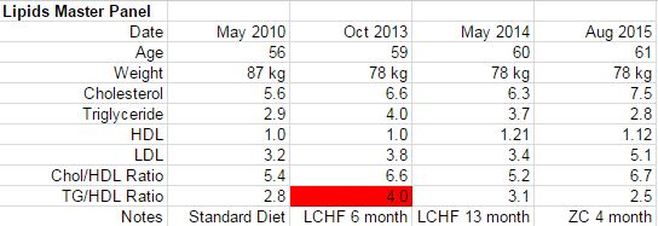 Well, the latest results are in on my lipids - and I can tell you now that my doctor will be (figuratively - because they use computers now) reaching for his pad marked 'Pfizer' and his pen marked 'Merck', to order up some Simvastatin to put me on post-haste. He will be doing this because, based on the New Zealand Primary Care Handbook 2012 - Cardiovascular Disease Risk Assessment (Updated 2013), I will be at a "'high' (15-20%) risk level, 5-year cardiovascular disease (CVD) risk (fatal and non-fatal)". He will have looked at the systolic blood pressure he measured on Monday (160) - which alarmed him at the time - (he didn't pay attention to me when I said that it was unusually high when I got up that morning but was fine the previous morning). He immediately scheduled a lipid panel and a follow-up appointment for 2 weeks. Well, what is going to arouse him about my latest tests? I'll tell you. First off the total cholesterol is 7.5, the triglycerides are 2.8 and the LDL is 5.1. This makes the TC/HDL ratio 6.7. By all the standards that conventional medicine practitioners in New Zealand follow these are HIGH. These are what will have him reaching for his 'prescription pad'. Now, the last time I had this panel performed we did so on the understanding that we would ask for a screening of apolipoprotein A1 and apolipoprotein B, the test that shows the predominance of the 'good' and 'bad' particles of that notorious LDL that everyone has been fixated about for the last 20-30 years. Well it turns out that the 'lab technician' (loosely called the Chemical Pathologist) at Waikato Hospital, vetoed this screening: "Comment: Apolipoprotein A1 & Apolipoprotein B has not been performed as the results usually provide very little additional information and are not performed routinely in Waikato Hospital Laboratory. Dr Stephen Du Toit , Chemical Pathologist" Well, what a fine fettle. I agreed to do the blood tests because we were going to do some additional screening that would cast some nuances and perhaps tell us something useful and now they dismiss that out of hand. (SMH). Fortunately, Phinney and Volek to the rescue. Recent research shows that we can work out the predominance of Apo A or Apo B by doing a calculation of triglyceride/HDL-C. Any result over 3.5 indicates a higher proportion of the Apo B (the ones that you don't want). I have performed this calculation myself - because they likely don't understand the importance of it in our NZ hospitals - and my doctor will not be up-to-date in these matters. I've put all my results up and will provide a link at the end of this post, but the story goes as follows: My first ever lipid panel was done in 2010 when I was 56 years old, 87kg and on the standard New Zealand diet of grains and all that rubbish. Ignoring all the other results for now the TG/HDL ratio was 2.8. By the beginning of 2013 I had climbed to 90kg and was getting concerned for my weight, starting to research what to do about it. I settled on a low-carb, high-fat way of eating as the most logical (from my research) step and commenced preparing all the meals for my wife and I based on this system - starting around April that year. Within a couple of months, we had both shed about 10kg, with no real effort (as LCHF allows you to eat as much as you like). A lipid panel done about 6 months into the LCHF revealed high trigs (probably a result of greater mobilisation of fatty acids while I was losing weight). But the TG/HDL ratio at that point was 4.0, indicating a predominance of the B pattern. The following year (13 months into LCHF) the ratio was back down to 3.1. Now, the current results (4 months into a new experiment of Zero Carb (food from the animal kingdom only - no plants) show that the ratio has gone to 2.5 - lower than it had been 5 years ago. Update: I had another lipid panel done 14 July 2016 and the results are: This shows that my TG to HDL has come back to a creditable 1.1 after a year and a half of zero carb.
The chart below was more to demonstrate what effect my life-style changes have had on uric acid but also shows the result on the lipids.  There is much to confuse the average bear of very little brain when it comes to working out why our population is suffering with more metabolic disease than ever before. Much data is put forward and there are many who advance their pet theories and confuse the situation even more. How is one to sift through the data and theories and work out what is going on? Well, part of the problem is that many people have not got the ability to make any sense of it all because they don’t have the skills of logic that allow them to connect the dots. Either they haven’t learned these skills during their life, they cannot be bothered putting the thought into it or they just plain don’t have the intellectual capacity for the job. These people are the ones that listen to the loudest argument or the most popular broadcaster and just go along with whatever that person says. It is no surprise that they change position now and then because a new idea surfaces that appears to contradict the old one, which is then tossed on the rubbish pile. Unfortunately the loudest arguer and the most popular broadcaster are often in the same intellectual boat as the people they are arguing and broadcasting to and do not, themselves, know which way the wind is really blowing. Nowhere is this more evident today than the dogmas surrounding our diet and health. Personally, I can see quite clearly how the ‘dots line up’ regarding our evolution and now, impending demise, through overpopulation and poor choice of nourishment. I’ve had a lifetime of putting up with people imposing ideas and rules that, to me, just don’t add up or are illogical. I’m used to ignoring them and steering my own course. Sometimes when some ‘authority’ or other will not allow me to steer my own course, there is a conflict. Mostly I just stay under the radar and keep a good lookout. To find out whether you have the skills of logic to sift through the information for yourself I’ve found a little logic puzzle for you to solve. If you can solve it, great! You are likely qualified to work out how to maintain your health in spite of overwhelming advice taking you in the wrong direction. If you cannot solve it then perhaps you are best to choose an advisor and listen to them. If you stay healthy, great! If not, find another advisor. Good luck! (I am available if you need help.) Here is the puzzle: Just spent the last couple of days trying to get some sense out of or back into a couple of young climate alarmists. My first comment was fairly innocuous but was immediately met with insults and invective. Every effort I made to bring a few points to the debate was met with the same sort of result, insult, assertion and invective - but no logical refute. I tried to show that there were a large number of scientists with good credentials that were skeptical about how settled the climate debate was - only to be met by the assertion that these people were all discredited. They even tried to call 'Godwin's Law' on me - by suggesting that one of the lists of dozens of climate change skeptic scientists - was the equivalent of Hitler Gary Lindsay entered the debate... and his contribution was characterised as a "Gish Gallop" I started to suspect, from the type of comments that Tong was putting up that he may have been infected by veganism - and made an aside to that effect - only to have it confirmed by his mate, Hudspith. High time I bring this discussion to an end methinks... Tong gets precious when it appears someone is giving back what he gives...
 I write the following based on what I've gleaned from the Internet about nutrition and health as well as personal experience of changing the way I eat. The reason I write it is because I want a summary that I can reference, together with pertinent links to sources of scholarly articles and/or scientific papers. The fact that I (and others) have found better long term health outcomes from bucking the system and changing our attitudes to the conventional dogma spouted by health 'authorities' about different nutrients, serves as some sort of proof of my cause. As always, it is the reader's choice to take the information on board or not, as they see fit. Carnivore, Herbivore, or Omnivore?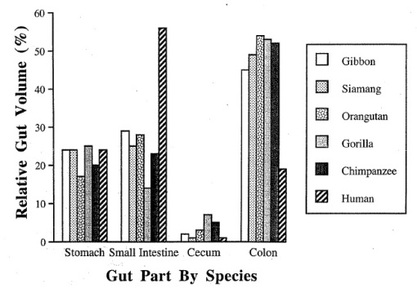 For the last (roughly) two million years, our species has been evolving and adapting to environmental changes in order to live on this planet. Whilst many vegans would have you believe that we have done this mostly based on a plant dominated diet, the evidence would suggest the contrary. We have developed a large brain, compared to other primates, and this has led to our dominant position in the hierarchy of the different species. There is evidence to suggest that vegetarians and their subset, vegans, have smaller brains than the omnivorous population. There is also evidence that our plant eating cousins have a longer colon with which to cope better in the digestion of plants. They need this in order for the bacteria in their gut to breakdown plant material and create the necessary short chain fatty acids that they otherwise wouldn't get. Humans are well adapted to absorbing essential proteins, fatty acids and micro-nutrients from animal foods. They are less well able to absorb these from plant-based food, in fact some anti-nutrients in plants actively work against such absorption. It may be, with concerted effort by vegan/vegetarians to move our species to plant-based eating, that we evolve (over the next few hundred thousand years) to be better adapted to do this. By that time we will more likely resemble the gorilla - with a smaller brain and a bigger gut. Come to think of it, maybe we are evolving that way more quickly than I thought. Under Attack From Big Food and Big Pharma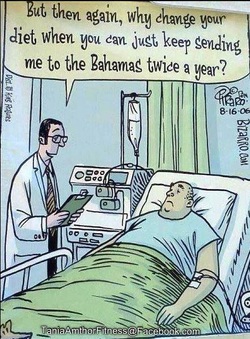 While we have spent most of our evolution adapting to the eating of animals and some parts of plants eg. fruits and leafy greens, for the last 5,000-10,000 years we have introduced agriculture into the mix and found that we've been adapting to its produce with mixed results. Preserved remains of some of our earlier agriculturists show that they had the beginnings of 'modern' illnesses such as shorter stature, pitted bones, diabetes and heart disease - symptoms not found in the remains of hunter/gatherer populations. Even more recently, in the last 200 years we've had the ability to refine grains and sugar and make them highly available - foods that in the past were not available at all (or in the case of sugar, available seasonally and combined with fibre). While much of the world, particularly food processors and the governments they paid for, scratched their heads wondering why people were getting sick, fat and having heart attacks, some of the sharper tacks in the box were pointing their fingers at carbohydrates. Meanwhile back in the '50s, Ancel Keys threw a spanner in the works and convinced governments that saturated fat, (yes the same saturated fat we'd been eating for 2 million years), was the new enemy and that it was causing our arteries to get clogged and give us heart attacks. If that wasn't enough, some other bright sparks decided that one of our most important biochemical building blocks, cholesterol, always seemed to be present when there was trouble in the body and therefore must be what was causing the trouble. Never mind that the body was only producing it to repair the damage caused by stress, smoking and eating the wrong things! The drug companies were quick to develop a new drug to stop the body from producing cholesterol and thereby leaped onto a new money spinner (much more profitable than snake oil). Unfortunately for us, statins cause more serious adverse effects (SAEs) and ill health because of the disruption that they are creating with our natural body defences. It is difficult to get the hard information on this because most of the trials have been done by the pharmaceutical companies and the results are strictly guarded. I have learned that eating cholesterol does not cause the body to have more of it than it needs and that if you don't eat enough of it the body will automatically create what is necessary [1]. So I don't hold back on bacon eggs and liver!
Overweight? Simple - Eat Less and Exercise More. Right?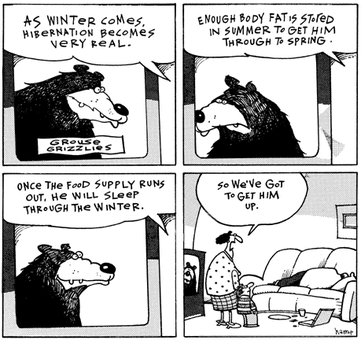 People don't get fat because they are lazy (don't exercise) or because they are greedy (eat too much). They also do not get fat by eating FAT! They get fat because the food they have been advised to eat is the type of food that drives fat accumulation. When eating that type of food the body automatically stores excess energy consumed as fat, to be used later. That particular type of food doesn't trigger the body to stop eating by signalling that one is full. The body will continue to eat it until it is gone because that is how it is with seasonal foods. If you try to regulate fat storage by exercising more, the body automatically signals 'hunger' and you will crave and seek out more food. If you try eating less, the body will automatically turn on 'lethargy'. When the supply dries up then the body goes through a period of 'conservation mode', it becomes lethargic and unwilling to spend energy. After this it switches to 'fat burning' mode and draws its energy from the large stores of fat that have been accumulated. Eating fatty foods typically will not switch it out of the 'fat burning' mode. The type of food that does cause the switch from 'fat burning' to 'fat storing' is CHO or carbohydrate. Our problem is that we have now got an unlimited supply of fruits in our supermarkets and we've been told by misguided health authorities to have multiple portions of them each day. Not only that, but our 'food pyramid' has been influenced by the big grain producers to include much of their, even more insidious, unhealthy product. So, eat the wrong food and have it drive you toward obesity, diabetes, CVD, dementia, ADHD Cancer Starvation. Warburg Effect Sugar feeds cancer cells. The mitochondria on cancer cells have become dysfunctional and do not signal normal cell death as they should. Also they cannot use fat as a source of energy and instead gobble up glucose. Because they do not signal when it is time for the cell to die its natural death (apoptosis), the cell continues growing out of control. Clinicians use the property of cancer cells taking up sugar (Warburg Effect) to diagnose the disease via PET scans. While drug companies see some promise making money by developing drugs that can starve these cancer cells - they haven't yet come up with the magic bullet. Do-it-yourselfers can simply try dropping sugar out of their diet - and cutting back drastically on those foods (carbohydrates) that just convert to glucose in the body. In my wife's case, (diagnosed with a malignant bowel tumour); at the time of surgery to remove it - and after some earlier chemo and radiotherapy - the tumour was found to be dead. No evidence of any spreading of the cancer was found. This effect is apparently found in only about 16% of those patients receiving the type of treatment she was on and we feel that her sugar free, low carbohydrate diet was a key factor in this result. My suspicion is that a probable cause of the cancer in the first place may have been her earlier penchant for eating indigestible 'health' products such as bran - which may have irritated the bowel and caused the damaged cells. Eating animal fats likely has a protective effect against cancers. Efforts by health authorities over the last 40 years to get us to cut back on animal fats seem to coincide with a greater prevalence of cancers. While lung cancer may well be initiated by smoke as an irritant - it might be that we now have a greater incidence because of the fact that our lungs have insufficient saturated fat to line themselves effectively. See also: Cancer as a metabolic disease Salt is needed and doesn't need to be regulated. Our body can do that for itself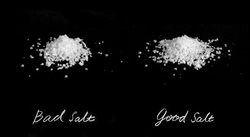 Having always been a person that adds salt to any meal until it 'tastes right', I had to have a laugh when I found out that reducing our salt intake to that of the recommended government guidelines will actually reduce our life expectancy. It seems that science has been going in two different directions with this subject over the last 40 years. One school of thought that found a link between high salt intake and hypertension (you know - in the type of study where they feed rats 60 times more salt than humans would normally eat) as opposed to another school of thought that found heart disease patients had a higher mortality with reduced salt over time. While more recent studies trying to link increased salt intake with poor health outcomes has proved "inconclusive" and "inconsistent", another set of studies trying to link the opposite ie. decreased salt with poor outcomes, seems to have found a much more consistent link.So, if your doctor has you on statins to reduce your cholesterol, low fat diets and reduced salt - what are you going to tell him on your next visit? If you don't believe me, Gary Taubes has written about it all here. According to another expert - "There is no scientific relationship between salt intake and blood pressure/hypertension. There is no way to manipulate the blood pressure by manipulating the salt intake." Inflammation by Imbalance - Omega 3 and Omega 6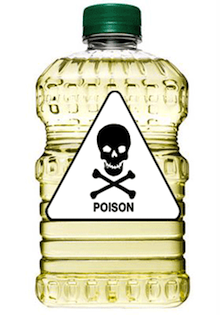 One of the trends in our food chain, since recommendations to reduce saturated fat became prevalent in the last 40 years, has been the move to increase our intake of vegetable oils. We've been urged to stop cooking in animal fats like butter, lard and dripping and use Canola oil instead. (Other vegetable oils are also touted). The problem is that the omega 6 fatty acids that are prevalent in these oils, (besides the oxidation levels), promote inflammation in our body when out of balance with omega 3 fatty acids. Vegetable oils are generally hard to obtain and have only been available with modern processing - coincidentally over the same time frame as modern illness. This is how you can optimise your omega-6 to omega-3 ratio Wheat, Not Just a Problem For Coeliacs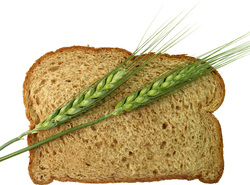 A recent addition to our food chain, wheat is something that we have to process in order to be able to digest (or at least partially digest). There appear to be some properties of wheat that are only now becoming apparent. Alzheimer's, among other diseases, may be linked to wheat. While we may have evolved over the last 10,000 years to be more tolerant of wheat (at least for populations that have had agriculture for that period), when you introduce wheat to recent hunter/gatherer populations adverse effects are more apparent. The apoE4 gene allene is one that has shown up in more people with Alzheimer's. While this gene has reduced/disappeared from populations that have a long association with wheat, it is still present in the likes of Polynesians. Polynesians have a greater incidence of Alzheimer's. Connect the dots. Our Life Expectancy is Getting Longer, Right?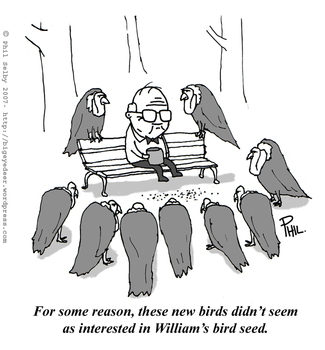 The argument often brought up by people when you explain to them that our ancestral way of eating is healthier for us, is that we used to have short life spans and therefore our current agriculture-based diet must be healthier since we live longer. Well the answer to this is that our rate of mortality has always been skewed by the fact that early childhood mortality has been high - partly by death due to infections and disease. If you take these out then the average length of life after getting to a certain age has never really changed much. What has happened in recent centuries is that we have found ways to get children to live longer. The current dietary regime, based on grains and sugar, is now attacking our mortality from the other end. We get people through the youth years only to have them die younger because of obesity related illness. This current generation is the first that is expected to have a shorter life span than the previous generation. Post Script While I spent quite a while researching the above and putting links to all sorts of places that I've found information, I have just found a very recent paper that backs up much of what I've just said. Naturally it is quite long and has a lot of scientific jargon as well as many links to scientific references but I am pleased to be able to include a link to it here. While trying to find links to a news item about an Otago University study that concluded with the suggestion of an idiotic tax on goods containing fat, I found another misguided organisation called Fight the Obesity Epidemic and decided to write them a letter to see if I could open some minds.
Hi, I was browsing and found your website. You seem concerned, like me, about the increasing incidence of obesity and its associated diseases of type II diabetes, CVD and others. There seems to be an assumption, by all the authorities on nutrition, that our obesity is caused by lack of exercise and eating too much. Unfortunately, in spite of multitudes of advice to eat less and exercise more, the authorities, and our country, seem to be fighting in vane. I would put it to you that people are trying to eat less and exercise more but are finding it difficult. I've done extensive research over the last 2 years because of my own growing obesity and failed attempts at curtailing it. I've looked at the history of our species and what has changed that might have caused our current conundrum. It is evident that our modern diseases related to obesity have largely come about in the last 200 years but something drastic must have happened around 30 years ago because they really started to escalate from then. I've come to some conclusions about what might be the underlying causes of obesity. To test my hypotheses I've embarked on my own n=2 experiment over the last 6 months. (The 2 refers to the experiment being carried out on both my wife and myself.) To our delight, we have both managed to lose weight. I've gone from 89kg to 77kg in that period and my wife from 89kg to 81kg. We have managed this with minimal effort and no exercise. An added benefit seems to be that we both now have enough extra energy that we have been able to take up cycling together in order to get fit as well. From my research, it occurred to me that all species, including humans, have been able to regulate their weight naturally without counting calories or worrying about balancing specific macro-nutrients in specific proportions. We can do this regardless of the amount of exercise we may or may not do. If we have high levels of exercise we take on extra energy in our fuel and if we have lower levels we automatically reduce the food intake. We don't have to make a conscious effort to do this as our very cells send out signals that cause us to regulate. I could get into the complex chemical and biological processes to explain this here but choose not to for the sake of brevity. Needless to say they are well written about in science and I can provide links for you to verify if need be. As far as I can work out, the change that has taken place in our society over the last 200 years that may have been contributing to our poor health, is that because of our industrial revolution, we have had greater access to refined carbohydrates in the form of sugar and flour. All our other foods have been in the same constant supply throughout our evolution, meat, fish, fruit and nuts. Dairy has been around for perhaps 5000 - 10000 years with the advent of agriculture - as has greater access to certain vegetables and some grains. It appears that bombardment of our cells with continuous levels of highly refined carbohydrates causes our cells to become insulin resistant and this plays havoc with our ability to self-regulate our food intake. A major change in our attitude to food 30 years ago appears to have accelerated the negative effects of refined carbohydrates in our nutrition. It seems that a study carried out by Ancel Keys, linking fat in our diet to increased risk of heart disease, changed the way we advised our populations to eat. As it turns out, the study was flawed and there was no link that could be proven. Nor has any subsequent study been able to prove a causal link. The last 30 years, I'm sure you'll agree, have been a disaster. We cut back on fat and meat in our diets and increased the refined carbohydrates and sugars - the net effect being to increase our body fat and the associated illnesses. We started blaming foods that have been in our diets for thousands of years for causing our modern illnesses. It seems illogical to me that we didn't first look at the foods that appeared in our recent history. So, for me and my wife, the experiment has been to remove the foods that the authorities have been recommending that we eat more of - the grains (particularly wheat) - and increase the foods that we've been told to steer clear of - meat, eggs, fats (like butter, cream and saturated animal fats). A bonus from doing this has been that we are not continually feeling hungry. I find that instead of wanting food every 2 hours I can go all day with high levels of energy and ability to concentrate before I get interested in food. It seems that my body is agreeable to this new way of eating and is gradually returning to normal. At 168cm and 89kg in March, I was considered to be obese. I've now got to 77kg and am just on the cusp of overweight and 'normal'. Based on the results of my experiment and my overall good health, I would urge that you take a serious look at what I've been doing and see if it might suggest a possible new strategy for FOE in giving obese people a new tool for getting healthy. For your information, I have created a small website on which I've put links to all the useful information and studies that I've come across in my own research. Cheers Gregg 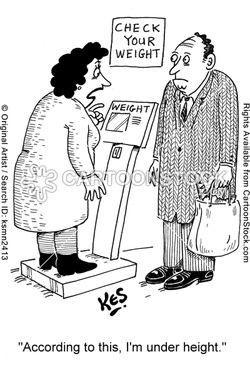 It came to me when I was trying to go back to sleep at 4am this morning. A relatively inexpensive modification at supermarket checkouts could give scientists all the information they need to know about the effect of different food products on our physiology. Simply have a device at checkouts that weighs the shopper and measures their height. The information that the supermarket already knows about what is in the shopper's basket could be teamed up with the BMI of the shopper and we could finally tell if a low fat high carb diet is more effective than a low carb high fat one. Do shoppers with more bread in their basket have a bigger "bread-basket"? Sounds like a scheme to me! 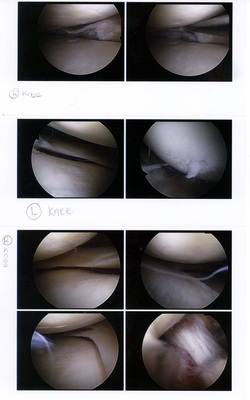 Well, after a couple of years I've finally had my operation. It was a mission! I had to get quite assertive at one stage in order to get a registrar to schedule an MRI. He only did so, under sufferance, hoping to prove that my problems were osteo-arthritic and not meniscus damage (as I had tried to contend). Thankfully my specialist, Grant Surtees, was on my side and felt he could see some damage. After seeking another opinion that concurred, I was scheduled for surgery. An additional complication was that my GP had only ever recorded my knee injuries, two of them, under the same ACC claim as my first one on the left knee. When the registrar scheduled the MRI, he asked me which knee and I said it didn't matter and that the one that was bothering me at the time was my right one. So the right one was MRI'd. When it got back to ACC that we wanted surgery on the right knee they baulked. Eventually Surtees corrected the paperwork and made the operation requirement for the left knee (and told me privately that while I was on the table he'd have a look at the right knee and scrape whatever needed to be scraped in a two for one.) Anyway after arriving home that day it was immediately apparent that I had no discomfort in either knee and had plenty of movement available. I can see it is going to be a great result! 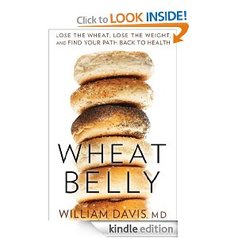 William Davis MD is a preventative cardiologist who has gone back to basics in the treatment of his patients - with outstanding results. Understanding that something in our modern diet must be responsible for our modern diseases, he has isolated wheat as being the overwhelming major player. Not only is our consumption of wheat what has been causing everything from cardiovascular disease to Alzheimers, from acne to psoriasis - eliminating it will reverse many of these disorders. Wheat once digested, releases exorphins that act on the brain in the same way as opiates. Once we are in the cycle of eating wheat it makes us powerless to stop. Just like smoking tobacco. And just like tobacco there are adverse health outcomes - only much more so. Bringing wheat into our diet is probably the biggest evolutionary mistake humankind has made. Fortunately we can fix this error, as many enlightened people are now doing. You need to realise, however, that there are some multi-billion dollar industries that are going to be resisting this change - an even bigger resistance than that of the nicotine pushers. Educate yourself and heal yourself, read the book. Having always been a person that adds salt to any meal until it 'tastes right', I had to have a laugh when I found out that reducing our salt intake to that of the recommended government guidelines, will actually reduce our life expectancy. It seems that science has been going in two different directions with this subject over the last 40 years. One school of thought that found a link between high salt intake and hypertension (you know - in the type of study where they feed rats 60 times more salt than humans would normally eat) as opposed to another school of thought that found heart disease patients had a higher mortality with reduced salt over time.
While more recent studies trying to link increased salt intake with poor health outcomes has proved "inconclusive" and "inconsistent", another set of studies trying to link the opposite ie. decreased salt with poor outcomes, seems to have found a much more consistent link. So, if your doctor has you on statins to reduce your cholesterol, low fat diets and reduced salt - what are you going to tell him on your next visit? If you don't believe me, Gary Taubes has written about it all here. 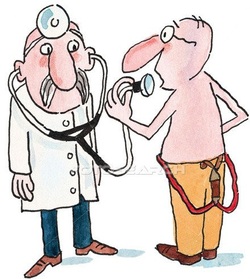 WANTED - Medical Practitioner in the Taupo area. Applications are invited for the role of medical consultant to a fifty nine year old male. They would only be needed about once every five years for a medical check-up, or perhaps, on occasion, for a minor sporting mishap. Applicants should ideally have a good working knowledge of LCHF food requirements and not need to have it explained to them. They should, at the least, be as healthy and fit as I am - I would wish to avoid the irony of having to give them medical advice. During interview, applicants can expect to be tested on their knowledge of cholesterol and its role in nature, as well as the nature of statins and their role in society. Less than 100% in this test will disqualify the applicant. Please initiate your application in the comments section of this blog. (Medical practitioners reading this advertisement, who do not understand the requirements, are welcome to contact the writer for consultation - which can be provided at a modest cost, commensurate with their own charge-out rate.)  Pictured at the right is an example medicine kit from someone on a post recently from Western Price Facebook page, asking, "What's in your home medical kit?" Well I had a quick browse through mine and produced this picture...  Rubbish! I'm sick of hearing that mantra of "Eat less - Exercise more". We keep trying to find reasons that our modern western culture is overweight. Yet these reasons don't seem to help us provide the solution we are after. Many people seem to believe that our modern life is too sedentary compared to our forefathers. I even hear it that when I was a kid we got out more and had more activity and that is why we weren't fat then. Well the fact is, you will burn around 1500 calories a day just by staying in bed. If you don't compensate for those calories by eating less then you will lose weight. If you eat more calories, you will gain weight. It is evident that our modern civilisation is eating more calories than we burn and it is worth investigating why. If you exercise more, but don't change the composition of your diet, you are likely to keep gaining weight. The reason is that you are eating the wrong things. What has changed in our diet?
Eating carbohydrates at the rate we do now overrides our natural mechanisms and balances. Our biology cannot cope and we store more and more fat while craving more carbs. On top of that our high carb diets are creating insulin resistance in us. Two hundred years isn't enough time to for our species evolve to such a radical change in our eating habits. Eating fat, on the other hand, gives our body a more efficient way of getting the energy it needs and we feel satiated on less calories. So, is it necessary to exercise to stay lean? Not at all. We don't even have to starve ourselves if we eat the right food. The only reason our society is getting fat is because we have our food pyramid upside down. I'm losing weight without having changed my level of exercise. I've just stopped eating carbs. Note: I have started exercising more in the last month. But I need to emphasise that is as a result of having more energy and because, having already lost weight, I had a desire to get into even better shape. The weight loss came first, extra exercise came second. Georgia Ede has written excellent articles on the role of fats and carbohydrates in our diet. Click the links for an easy and informative read. Years ago I used to tell people that I could go all day on a single cup of tea in the morning and not bother eating until the evening meal. People would tell me that was bad for me and that I should have breakfast - that it was the most important meal of the day. In truth, I wasn't hungry at that time. If I got stuck into some sort of activity, like going skiing, I would be able to ski all day then have a meal in the evening. During the day I might have a coffee or not - depending on whether I felt like a break. In fact the drinking of coffee or tea seemed more like a social thing, or a habit, (in the case of the early morning one). I could certainly forego these drinks without being aware of any effects.
In more recent years I have tried to get into the habit of having a breakfast, partly because of what people had told me. I got into the groove of having some cereal, perhaps with fruit, but always with half cream and half milk, plus sugar sprinkled on top. I usually felt hungry by midday and would have some sort of meal like a pie and doughnut. In the evening I would have my normal meal. During those years I packed on the weight. About three years ago I watched the movie Fathead by Tom Naughton and decided to start a new habit. I began cooking a breakfast every morning consisting bacon, eggs, tomato and onion - all fried in dripping or lard. This was delicious. I began to lose weight - at least for a few months, until I injured my knees and could no longer walk for my three to four weekly games of golf. I also got tired of getting up and going to all the effort of cooking breakfast. I started putting on weight again. I got up to 89kg. I could no longer wear my good suit. That was a nuisance, since it was what I always wore to funerals. I decided to revisit Tom Naughton and along the way I found other people like Georgia Ede. The results of my research saw me take us on Our Journey. But the thing is - I don't worry about not having breakfast any more. I am quite content to have my coffee with full cream in it in the morning - maybe two, since it is quite "moreish". Then I head out for golf or some other activity and don't concern myself with food for the rest of the day. When I get home I prepare an evening meal, and that, plus another coffee later on, is enough for the day. I might have a snack of some nuts or a piece of cheese at some point or other. Anyway - the original subject - about breakfast being important... I think that is probably true if you eat carbohydrates. Eating carbs puts the blood sugar up and then the body needs to use it or, if it cannot use it, store it as fat. (Insulin takes care of this). When you have used up the supply of sugar, which you do fairly quickly, the body tells you to replenish it by making you hungry again. You eat more carbs and then the cycle continues, all the while your body stays in sugar burning mode - storing excess sugar as fat. It never goes into fat-burning mode. When you think about this in terms of our early evolution, it makes sense that our bodies be able to do this when food, including fruits, were plentiful during warmer weather. We could store our food as fat and then when the weather got colder or food became less plentiful, we could just use our reserves of fat. Problem is, in our modern western world, food is generally very plentiful. On top of that we have developed highly refined carbohydrates and sugars which are, oh, so convenient, to eat. Delicious too! They are making us fatter and fatter. Our switch from eating meats and whole foods to eating carbs over the last couple of centuries seems to have gone unnoticed. Meantime, misguided scientists, thinking fat must cause us to get fat, (seems logical doesn't it?), have created studies to try and show that fat is the cause of all our ills. In spite of the fact that there is not one reputable study that shows a causal link between eating fat and poor health, we have been persuaded to avoid fat and eat vegetables and grain. We are getting fatter! My meals, including caloric and nutritional data for the last 3 days, indicate that I eat low carbs and high fat. Most of my calories come from eating fat. I don't know for sure, (because I cannot measure it), but I think that I'm in a state of nutritional ketosis. This means that my blood sugar is likely to be fairly constant through the day. My body is in a mode that is burning fat for fuel rather than sugar. Because I'm directly accessing the plentiful supply of fat that I have, it is always available to supply my brain, (so I can concentrate on my golf swing) - and my muscles, (so I can execute it properly). In spite of me not having breakfast for the last 5 months, my golf has never been better - and I've lost 10kg to boot! (Normally my golf gets worse during the winter - going from a 12-13 handicap out to a 17. I was on a 14 handicap at the beginning (April) of this diet and I got down to 11 in August.) Do you think that fat people are that way because they are too lazy to exercise. That they eat more because they are greedy? That they basically become obese because calories in is greater than calories out and that it is within their control to do something about it? Have a listen to this guy and see if you still feel the same way afterward. With some people, coffee is regarded as an unhealthy food. In my case I make coffee with full cream and no sugar. It is what I make when I get up in the morning and I have no cravings for food during the day. In fact my energy levels are great all day and I can play 18 holes of golf then come home and make dinner for Chris and me. I suspect that having the fat in the form of cream in my coffee 'satiates' me and I'm probably living in fat-burning mode. While I can take or leave coffee, I do enjoy it with full cream (have done since I was a teenager), and since it usually is the only thing I have all day until my evening meal, I felt it an appropriate illustration for the site. ;-)
|
Gregg SheehanProblem solver from way back. Currently working on the challenge of weight and health. Hence this website. Archives
November 2020
Categories
All
|
Gregg's Diet Shack
- Journey
- Index
-
Basics
- Discussions by Subject >
- Foods - Nobody does it better than Georgia Ede >
-
The People
>
- Rosedale Lecture
- All Sorts of Links and Videos
- The 20 Myths
- Diet and Nutrition for the Australian People
- Diet, Nutrition and Biochemistry Blogs and Websites
- Discussion on the 'life expectancy' myth
- Micronutrients Veg vs. Meat
- Human History >
- The Fat of the Land
-
Diseases
-
The Studies
- Tools
- Blog
- Quotes
- Recipes
- Articles
- Contact
- RDA
- Liver Flush
- Smacking
- Controversy
- Whisky
- Lentils
- Chad
- IQ
- False
- Falseinfo
- factcheckgood
- factcheckivermectin
- TGC-Licence
- Moccasins
- totalgym
- Law
- Scooters
- Nami
- Search

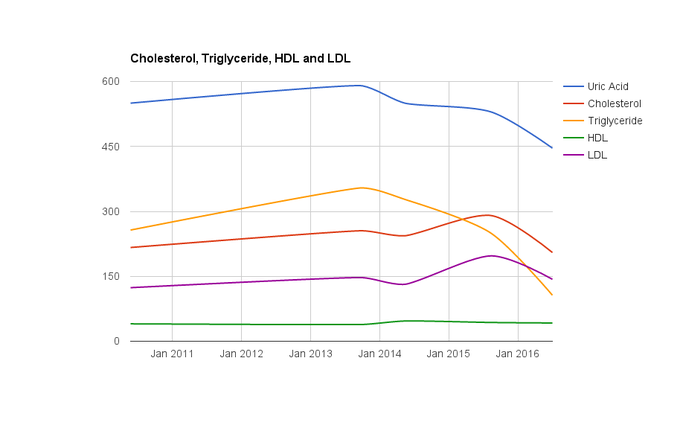
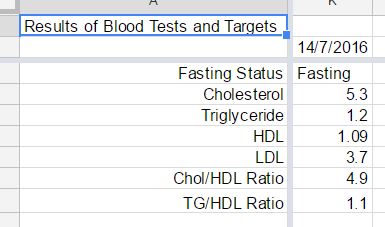
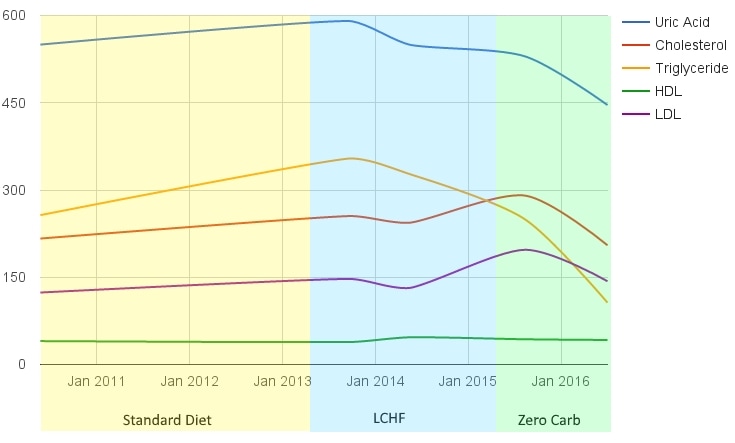


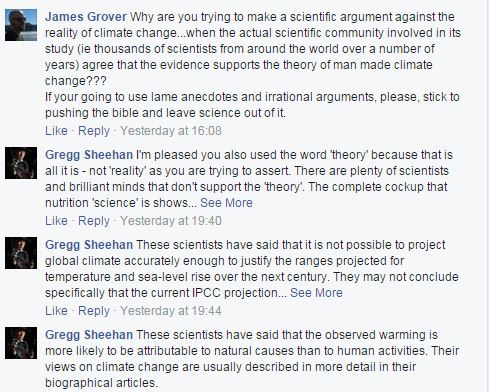

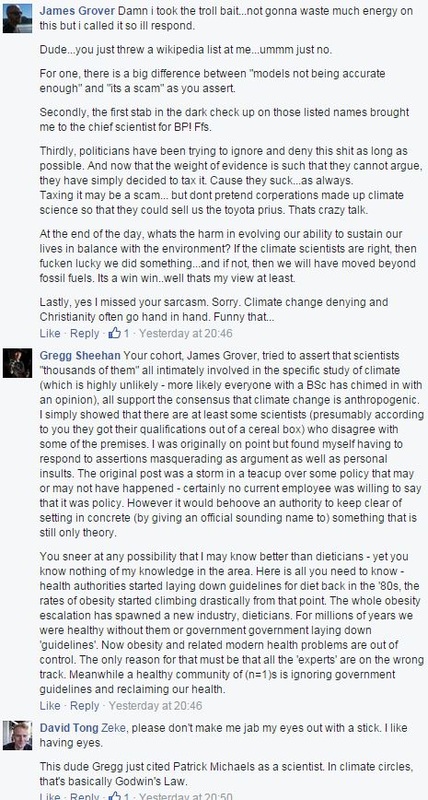

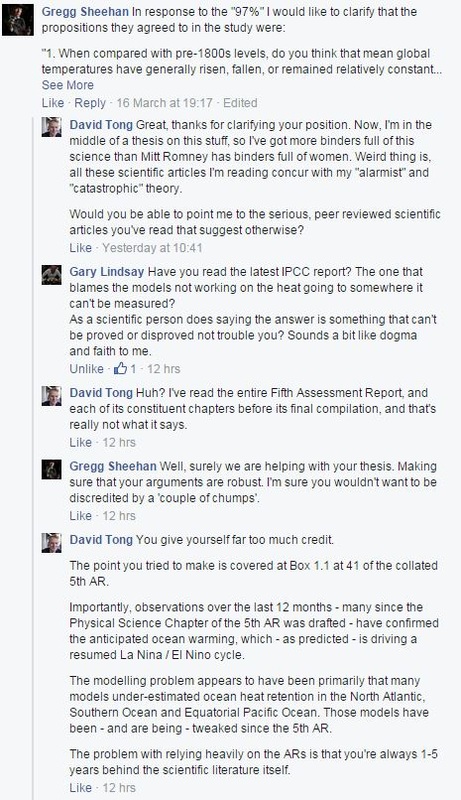
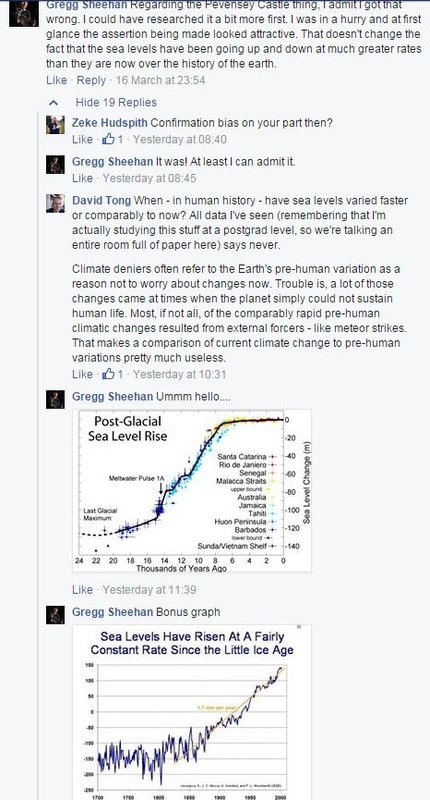
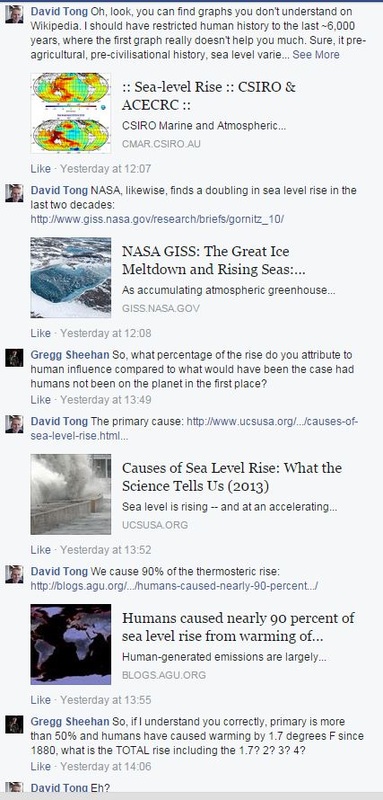
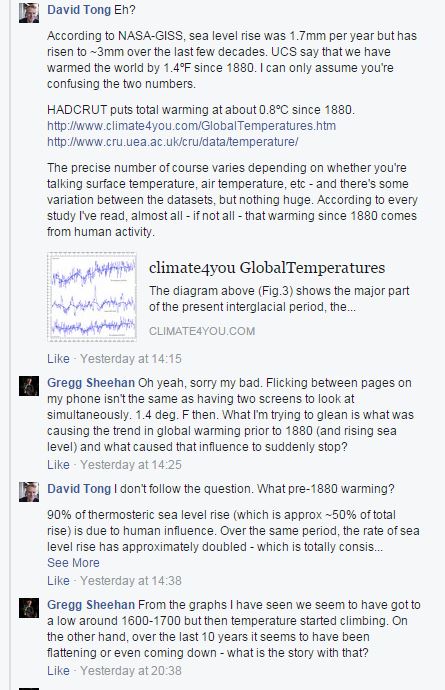
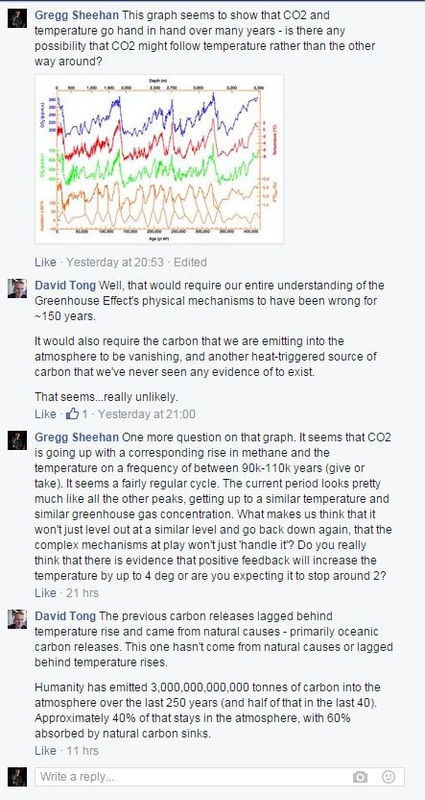

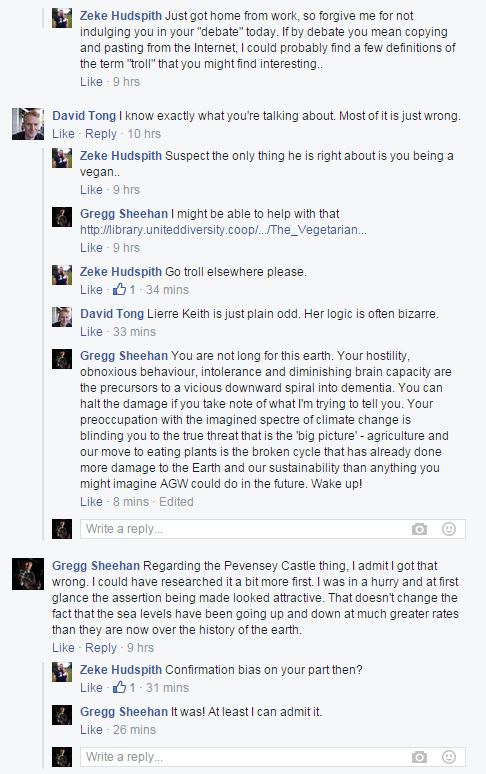



 RSS Feed
RSS Feed
